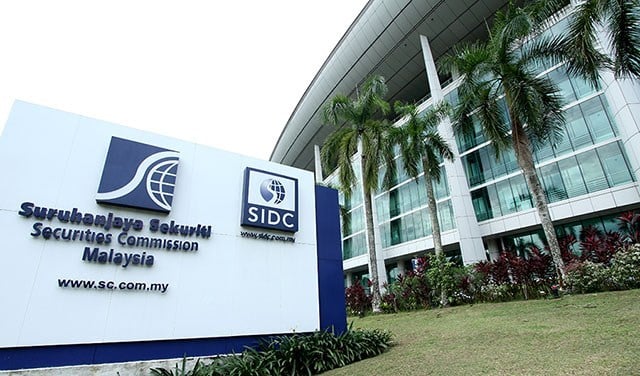Table of Contents
In a recent announcement made on Halloween, the Securities Commission Malaysia (SC) announced new digital-related initiatives to spur the growth of the capital market and (spookily) help support the country’s economic recovery.
The initiatives mentioned moves towards a “liberalisation of the capital market” to allow micro, small and medium enterprises (MSMEs) and mid-tier companies (MTCs) to have better access to funding to grow their businesses.
This announcement comes as a stir up to the Malaysian market, particularly in the Recognised Market Operators (RMO) sector. In the digital initiative announcement, the SC will accept new registrations for RMO-DAX (Digital Asset Exchange) licences and at the same time, establish a RM30 million (US$6.3 million) Digital Innovation Fund (DIGID) for smaller players to adopt digitalisation to improve capital raising and innovative investment activities (Initial Exchange Offering models finally anybody?).
On one hand, the move comes as a signal to allow new and innovative digital asset business models to take place in the market. On the other hand, the market share for the capital funding ecosystem is diluted even further within the existing mechanisms of P2P, ECF & VC funding.

Acquiring the RMO License – An Experience
Currently, there are only four registered RMO-DAX licences and these are known to be notoriously difficult to obtain, given the hoops to jump through and the wait time set by the SC.
Co-founder and managing director of DAX Sinegy, Kelvyn Chuah, recounted his experience of the application process was extremely tedious and competitive. He lamented to Blockhead the amount of detailed paperwork to submit in the form of trading manuals and vendor lists that was needed to explain the DAX product.
Apart from Sinegy, there were 20 other companies that also submitted their applications for the RMO-DAX licence. It took about three months for application and submission, followed by another four months of evaluation by the SC RMO team to receive a conditional approval.
“After we got the conditional approval, we were given 9 months to execute and essentially get all the pieces of the puzzle in place. Following that we had a final interview with the SC board from various departments to question our processes and methods. Once they give you the green light, you’re allowed to go live on the market, and that entire process we went through took us over one year to complete,” Chuah and Blockhead both breathed a sigh of relief after the explanation.
While the process alone is enough to deter anyone from applying for an RMO licence, Chuah insists that the announcement from the SC is sound and is supportive of the decision in the announcement. Mainly because it allows new digital asset business models into the space.
Earlier in March this year, the SC had registered two IEO operators, Kapital DX and PitchIn, to promote digital asset tokens issuance as an alternative source of fundraising in Malaysia. Recently, PitchIn had quietly announced their conditional approval from regulators, which they now have to serve the time towards getting their administrative documents in place before a final interview with the SC. Once executed, PitchIn will serve as the IEO launchpad in Q1 2023 to bring a vibrancy into the market as they intend to be in partnership with the four registered Digital Asset Exchanges in Malaysia.
We reached out to the team at PitchIn to speak about the announcement but they mentioned that due to an ongoing due diligence, they would not be able to provide any comment. We wish them all the best in the final leg of the process.
Addressing the Competition – Blue Ocean Ahead?

The issuance of new licences at a glance looks to promote competition, but at what cost? An overlooked point in the announcement was that the move comes as a remedy to support the post-pandemic economic recovery in order to continue the innovation and growth potential of small, regulated capital market players.
A finding from the most recent Malaysian Central Bank (BNM) Monetary Policy Statement had increased the Overnight Policy Rate (OPR) from 2.5% to 2.75%, effectively increasing interest rates to manage ongoing global inflation. However, seeing that the US Federal Reserve has been consistently increasing their interest rates for the last six announcements, it does beg the question if the strategy here of the SC is potentially a knee-jerk reaction as opposed to a well thought-out plan for growing a globally competitive digital asset ecosystem. Especially after delivering the surprise hatchet for Binance’s untimely demise in the Malaysian market a year ago.
It remains to be seen if the DIGID fund with its RM500,000 (US$105,000) ticket size will benefit the ecosystem, given that most global web3 ecosystems require the help of venture capital to accelerate growth. With that said, the DIGID fund now poses a threat to the 70 venture capital funds operating in the market. The launch of the fund signals an alternative source of funding for smaller capital market players, against unscrupulous investors who would undercut valuations for more equity.
President of the Malaysian Business Angels Network (MBAN) Alan Lim, said that “by increasing the competition in the market, the biggest winners stand to be digital asset players, the companies & the startups operating in the space”, he told Blockhead.
He believes in the “rising tide lifts all boats” philosophy, citing that the market requires every effort from all players to grow the digital asset space, considering the market’s stage of infancy. We also spoke about a concern that issuing more licences is inefficient for the current fundraising ecosystem. However, we arrived at a conclusion that more licences do not always lead to better quality or innovative capital funding operators. It is simply up to the operators and regulators to be better at what they do.
However, like a true OG, he remains optimistic about the future of digital asset fundraising instruments for Malaysia. The announcement brings a revitalising energy for capital market operators and the introduction for new, regulated digital asset business models would certainly be a refreshing way to revitalise a laggard digital asset market and global fundraising ecosystem in this part of the world.
Drop us a tweet @blockhead with your thoughts on the SC RMO applications.
Follow the Blockhead Malaysia telegram group for more Malaysia-focused commentary and intel.








